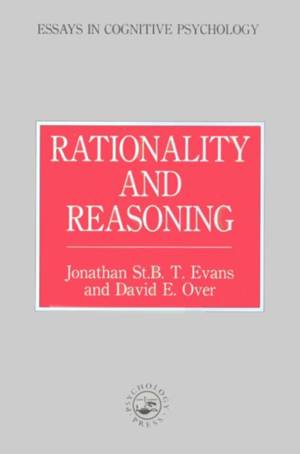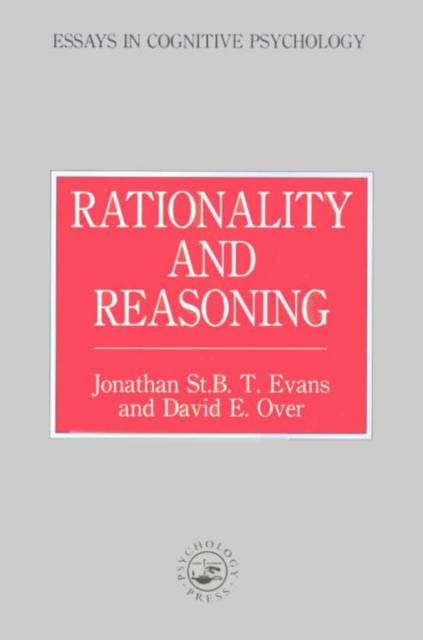
- Retrait gratuit dans votre magasin Club
- 7.000.000 titres dans notre catalogue
- Payer en toute sécurité
- Toujours un magasin près de chez vous
- Retrait gratuit dans votre magasin Club
- 7.000.0000 titres dans notre catalogue
- Payer en toute sécurité
- Toujours un magasin près de chez vous
Description
This book addresses an apparent paradox in the psychology of thinking. On the one hand, human beings are a highly successful species. On the other, intelligent adults are known to exhibit numerous errors and biases in laboratory studies of reasoning and decision making. There has been much debate among both philosophers and psychologists about the implications of such studies for human rationality. The authors argue that this debate is marked by a confusion between two distinct notions: (a) personal rationality (rationality1 Evans and Over argue that people have a high degree of rationality1 but only a limited capacity for rationality2. The book re-interprets the psychological literature on reasoning and decision making, showing that many normative errors, by abstract standards, reflect the operation of processes that would normally help to achieve ordinary goals. Topics discussed include relevance effects in reasoning and decision making, the influence of prior beliefs on thinking, and the argument that apparently non-logical reasoning can reflect efficient decision making. The authors also discuss the problem of deductive competence - whether people have it, and what mechanism can account for it. As the book progresses, increasing emphasis is given to the authors' dual process theory of thinking, in which a distinction between tacit and explicit cognitive systems is developed. It is argued that much of human capacity for rationality1 is invested in tacit cognitive processes, which reflect both innate mechanisms and biologically constrained learning. However, the authors go on to argue that human beings also possess an explicit thinking system, which underlies their unique - if limited - capacity to be rational.
Spécifications
Parties prenantes
- Auteur(s) :
- Editeur:
Contenu
- Nombre de pages :
- 192
- Langue:
- Anglais
- Collection :
Caractéristiques
- EAN:
- 9780863774386
- Date de parution :
- 17-06-99
- Format:
- Livre broché
- Format numérique:
- Trade paperback (VS)
- Dimensions :
- 151 mm x 228 mm
- Poids :
- 281 g

Les avis
Nous publions uniquement les avis qui respectent les conditions requises. Consultez nos conditions pour les avis.






